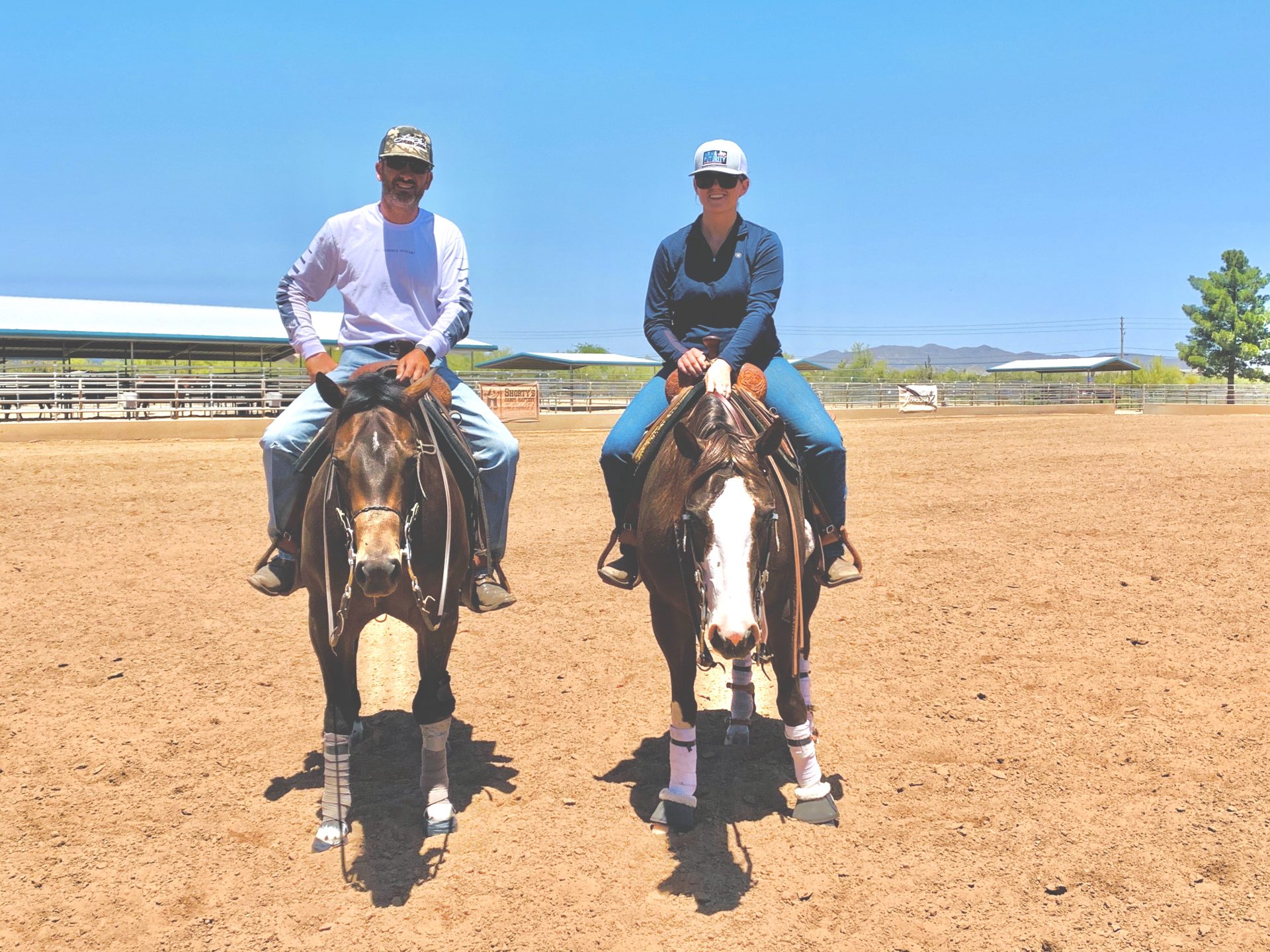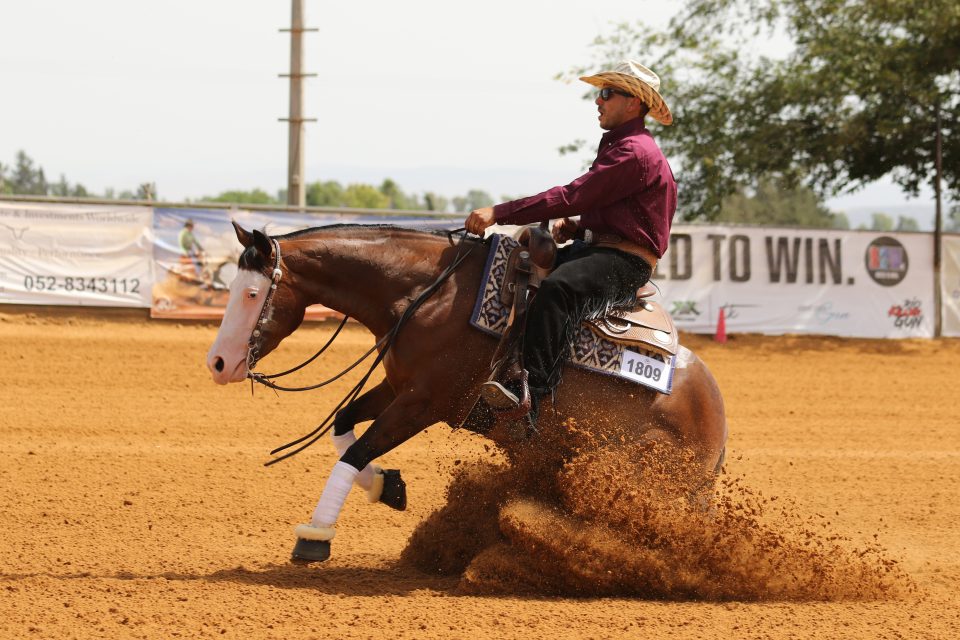Could your training program benefit from having lesson horses? This four-part series might help you say ‘yes’ to lesson horses.
By Katie Navarra

Nearly three years ago, an avid team-penning competitor approached NRHA Professional Ryan Anderson of Clyde Park, Montana, requesting an introduction to the sport of reining. Anderson maintains a half-dozen horses for lessons and invited the rider to take a few “test rides.” After a few rides, the team penner sold his penning horses and cattle and dove head-first into reining. Today, the penner-turned-reiner owns competitive reining horses, including a few broodmares that are in foal to big-name studs.
“He’s probably my best client, and I never would’ve connected with him if I didn’t have lesson horses available,” Anderson said about his successful relationship.
In a business where profit margins are slim, many trainers consider lesson horses too costly. There’s no denying that expenses accompany these horses, as they still need to be fed, vetted, and shod. That can be burdensome, especially for trainers who rent stalls in a commercial facility.
But other trainers view lesson horses as an invaluable revenue generator critical to the long-term viability of their businesses. Anderson believes that even one lesson horse can help any trainer cultivate new clients, generate new revenue, and encourage sustainability of the industry as a whole. Three other professionals—Anderson, Shawn Church, Michelle Chapman, and Michael Davis—explain how in this series of articles.
Part 1: Temporary to Permanent Riders
Part 2: The “Right” Horse
Part 3: Value-Added Benefits
Part 4: Right for You?
Value-Added Benefits
Davis explains that he uses his lessons horses as an opportunity for his assistant trainers to increase their earnings and further develop their skills.
“The assistant trainers keep 50% of the lesson fee,” he said. In part, Davis offers this as an alternative to a pay raise, but it’s also a learning experience for new trainers in what the business will be like when they go out on their own.
“In most cases, they’re going to go out on their own at some point,” he said. “Lessons are a great way to generate income, and in the real world it might be what they have to do.”
It’s no secret that turning a profit is the key to running a successful business. Without income to pay the bills and extra to live on, you won’t be training horses for very long. Lesson horses not only generate income for the business but can also be used to generate goodwill in the local and regional communities and the industry at large.
Chapman lends lesson horses for use in local middle school and high school Interscholastic Equestrian Association (IEA) team competitions.
“It allows us to give back to the community and build a rapport with potential future clients,” she said.
Loaning well-trained horses to these programs provides up-and-coming riders a glimpse inside the industry. Hopefully, by having access to top-notch horses for their competitions, young riders will stay involved with the discipline over the long term.
“Loaning our lesson horses helps us build a future for the horse industry,” she said.
Let’s address the elephant in the room: ruining a horse. Pairing finished reiners with beginning riders doesn’t always negatively impact the horses’ training, Chapman shared. It may dull the horse’s response to cues, but that’s about it.
“Beginners don’t know enough to do any real damage,” she said. “And they’re not going fast enough or hard enough to hurt the horse.”
Read the rest of this article at the links at the beginning of this post.



